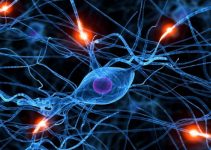People always have this notion that memory loss is the first sign of Alzheimer’s disease but researchers have refuted this in a recent study that showed other signs could manifest earlier.
Josephine Barnes, the study’s lead researcher at the National Hospital for Neurology and Neurosurgery in London, explained that in their study, they found that younger Alzheimer’s patients often show non-memory first cognitive symptoms. Thus, they recommend that non-memory cognitive problems be used to check Alzheimer’s, especially those younger than the average age of most sufferers.
The study noted that the average age for people seeking treatment for Alzheimer’s is 75, with sufferers ranging from as young as 36 to as old as 110.
As the patients grew older, memory problems came into the picture even if they did not start out with cognitive symptoms at the onset of the disease. Most of those who went to treatment for Alzheimer’s disease at older ages exhibited cognitive symptoms.
The younger Alzheimer’s disease patients reported issues in problem solving and having trouble with language which are still categorized as cognitive problems but are not directly related to memory loss.
Early Diagnosis
There is no cure for Alzheimer’s disease yet but medicines can “reset the clock” which means “reversing the symptoms enough to give patients the same abilities they had up to a year earlier”, says Dr. Andrew Budson, a neurology professor at Boston University and the chief of cognitive and behavioral neurology at the VA Boston Healthcare System.
This reversal largely depends on the “settings of the clock”; thus, it is important that Alzheimer’s disease is diagnosed earlier. According to Budson, the clock can’t be slowed down but it could be reset; thus, “It is much better to dial it back to repeat a year in your 60s than in your 80s.”







